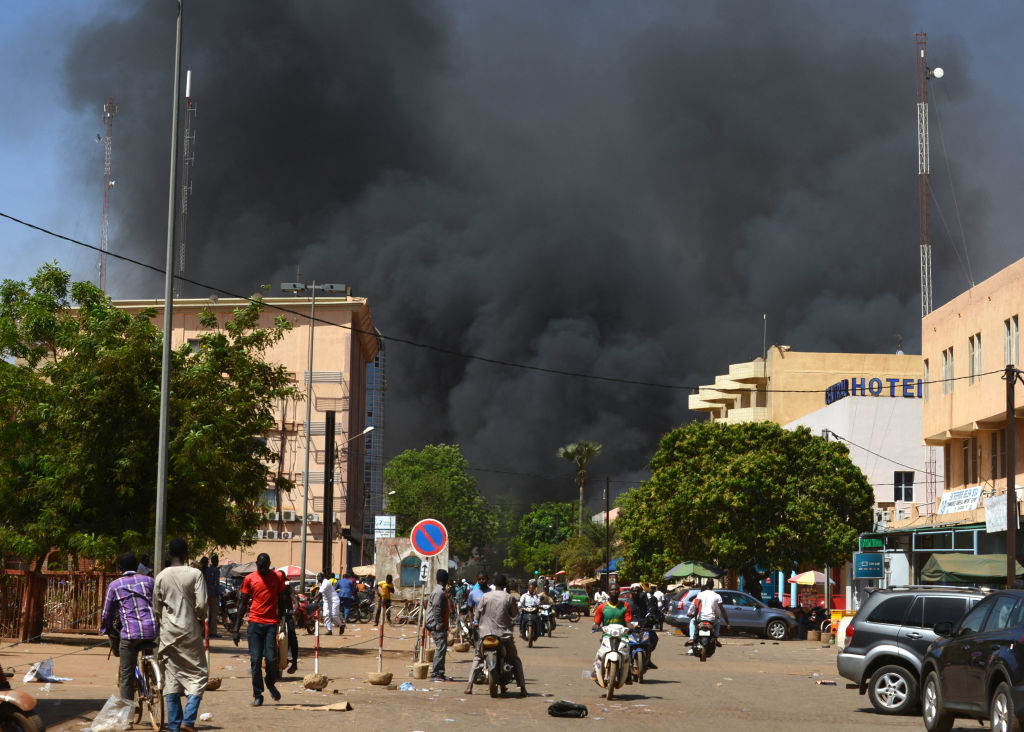ADF STAFF
Overall governance and security was worse in 2023 than it was a decade earlier for most of Africa’s population.
That is according to the 2024 Ibrahim Index of African Governance (IIAG), which found the rise in junta-led governments may drive greater conflict, fueling a trend of deteriorating living standards. After years of steady progress, Africa’s overall governance performance ground to a halt in 2022, the report showed.
The IIAG is funded by Mo Ibrahim, a Sudanese billionaire and democracy advocate. It is published every two years.
“Going forward, any state actor seeking to strengthen their performance as reliable deliverers of social, political, economic, environmental and public goods and services would need to succeed in multiple dimensions of governance,” Adeelah Kodabux, director of LEDA Research and Advocacy in Mauritius, wrote in the report. “Declines in areas of participation, rights, rule of law and justice and security are difficult to offset in the long run unless immediate actions are taken to remedy lapses in these categories.”
The countries where overall governance declined the most over the last decade are, in descending order: Comoros, Tunisia, Mali, Mauritius, Burkina Faso, Botswana, Namibia, the Democratic Republic of the Congo, Niger and Eswatini, the report said. Burkina Faso, Mali and Niger are each under military junta rule.
“We must work harder to ensure that progress is felt in the everyday lives of our people and better reported when that is the case,” Ibrahim, founder and chair of the Mo Ibrahim Foundation, wrote in the report. “Because unmet expectations, especially for the young people, fuel frustration and anger, the best triggers for unrest and conflict.”
About 80% of Africa’s population lives in countries with low scores for security and safety, rights and participation in governance. This trend is mostly driven by violence against civilians and a strong deterioration in public perception of security and safety, the report said. The problem is most acute in Burkina Faso, due to ongoing, escalating armed conflict throughout the country.
The index showed that security and areas with representative governance have deteriorated for the majority of Africans, as more than 77% of the continent’s population lives in a country where these dimensions are worse in 2023 than in 2014. The main driver of this is deepening security crises and a nearly continentwide reduction in participatory government.
The security and safety climate in the junta-led countries of Burkina Faso, Guinea, Mali and Niger, each of which has left the Economic Community of West African States, or ECOWAS, has deteriorated almost five times more than in current ECOWAS countries, the index reported.
Scenarios such as this underscore the need for “urgent interventions to address growing insecurity, corruption and governance challenges that threaten sustainable development,” Enock Nyorekwa Twinoburyo, senior economist at the Sustainable Development Goals for Africa, wrote in the report. “Without a concerted effort to strengthen institutions and improve security, the outlook for peace and stability remains uncertain, stalling broader progress towards achieving the Sustainable Development Goals by 2030.”
The report also offered some hopeful news. The most improved countries for overall governance were: Seychelles, The Gambia, Somalia and Sierra Leone. Seychelles and Sierra Leone were the only two countries to make progress in all 16 categories evaluated by the Ibrahim Index.
Horst Köhler, former president of Germany, wrote in the report that it is overdue to fulfill the African Union’s demand for two permanent seats on the United Nations Security Council, an opinion shared by U.N. Secretary-General António Guterres.
“African voices, African insights and African participation must be brought to bear across the Council’s deliberations and actions,” Guterres told the Security Council in August. “This is not just a question of ethics and justice. It is also a strategic imperative that can increase global acceptance of the Council’s decisions — benefitting Africa and the world.”
The index also noted progress over the last decade for about 90% of Africa’s population in the areas of infrastructure and women’s equality and health. The positive trend in infrastructure was driven by progress in mobile communications, internet access and access to energy. Morocco showed the best infrastructure performance, while Lesotho was the only country to show a decline in mobile communications.
The positive trend regarding gender equality was mostly driven by substantial progress in laws regarding violence against women, public perception of female leaders and the political power and representation of women.

